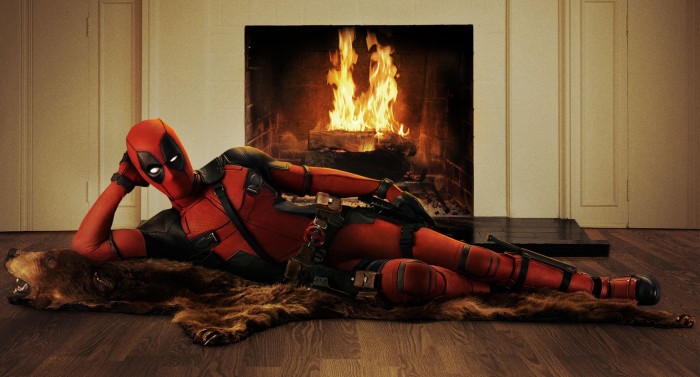In 2014, a short clip of Deadpool test footage was leaked on YouTube, after the character was considered too crass for movie screens. The video—which has since been deleted by 20th Century Fox—sparked a movement among fans who had been altogether disappointed by the character’s 2009 appearance in X-Men Origins: Wolverine. On Feb. 12, the “merc with a mouth” finally made his way into theatres, burdened by an R-rating that was expected to ruin his chances at commercial success. Instead, Deadpool set the record for the highest grossing opening weekend for an R-rated film—and with good reason. Recognizing itself as an adult superhero movie, Deadpool finally gives audiences a comic-based action flick that refuses to take itself too seriously, but in the process, risks constricting itself to a narrow audience.
Deadpool follows Wade Wilson, an ex-special forces operative turned mercenary assassin with a penchant for alcohol and foul language, as he falls in love with a prostitute he meets at his favourite bar. In a twist of fate typical of comic book stories, Wilson is diagnosed with late-stage terminal cancer. In an attempt to save his own life, he subjects himself to experiments by a sadistic mutant doctor, Francis, that leave him with an accelerated healing ability and looking like “an avocado had sex with an older avocado." Taking on the persona of Deadpool, Wilson launches a campaign for revenge against Francis, tracking him down and leaving a trail of bodies in his wake in the hope of reversing his disfigurement and reuniting with his girlfriend.
Deadpool is truly what every comic book fan wants to see when their favorite character gets a movie deal. Deadpool is notorious for his vulgarity, sense of humour, and breaking the fourth wall on the page—characteristics that in the '90s made his edgy comics a hit among readers, creating devoted fans. He was a popular costume choice at comic cons long before there was any talk of his appearance on the big screen. The best part of reading Deadpool is that it doesn’t strive to be anything more than a comedic romp through violence with a beloved—but ultimately not truly lovable—main character. There is debate over whether Deadpool really deserves the designation of superhero; he doesn’t act on moral grounds or in the good of humanity and his services usually go to the highest bidder, or follow his fleeting desires. The film doesn’t try to change his character. Aside from a love story that plays a large role in the plot, Deadpool doesn’t try to find depth in the character like most superhero films do, a refreshing change for fans.
The best part about Deadpool is that it’s not about anything deeper than Deadpool. Even the love story serves to set up a plot in which he ultimately seeks revenge for his disfigured appearance, all the while killing anyone he can get his hands on in pursuit of his nemesis. And he manages to be funny the entire way through, interacting with audiences and winning over fans’ hearts much the same as the print character has for decades. The comedy begins before the movie is even really rolling, with credits that deem the writers “the good guys” and the producers “the asshats.” The film takes advantage of a number of inside jokes for comic fans, such as poking fun at the confusing X-Men cinematic timeline, and develops the self-awareness that make his comics so refreshing. It also situates itself nicely in the X-Men universe, pulling in characters from the comics and helping audiences anchor themselves in an already familiar world. Even the music creates comedy, pairing The Cordette’s Mr. Sandman with a gruesome torture montage.
However, Deadpool presents a challenge to parts of the audience. Nearly every line out of the main character’s mouth is a joke—a breakneck comedic speed that can grow tiring for viewers who fail to develop a connection with the character. This connection is challenged by the violence of the film that serves no greater purpose. Normally when we see a superhuman character disfiguring regular people, it’s justified by the greater good, or it’s used to illustrate the amoral nature of a villain. Deadpool is neither of these things and asks audiences to justify his violence with his search for reunion with his girlfriend, a stretch for audiences accustomed to Captain America and the humanity-saving X-Men.
Deadpool is finally what comic fans have been asking for: A movie made for them. But, in pleasing them, filmmakers run the risk of alienating the general audience in future installments. It’s the nature of comic book movies that there won’t be just one, and Fox and Marvel will have a challenge ahead of them to keep the general audience interested without losing the fans who pushed them into the franchise in the first place.









